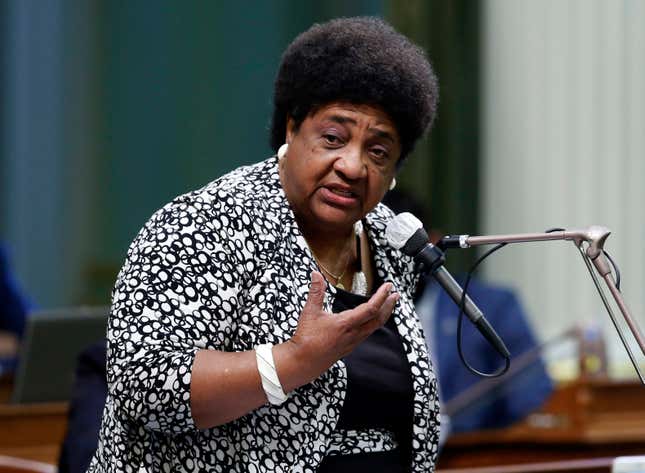
The state of California is drawing what could be a road map to reparations for descendants of the slave trade in the United States, though it might take years before any actual plan is enacted.
The state’s Reparations Task Force, created by legislation signed in TK year, released a 500-page report on slavery’s impact and legacy in California and that report was officially recognized during an event at the state’s capital honoring the Juneteenth holiday, USA Today reported.
But the task force’s work is far from over; it now must wrestle with the logistics of making a potentially massive financial program work. California’s effort actually looks toward drawing creating a potential legislative framework that could make the state with the country’s largest economy also the first to provide financial redress for slavery and its continued legacy.
From USA Today
Halfway through its two-year term, the California panel will collect more public comments via listening sessions and surveys, including a statewide random sample outreach, as it gets down to the challenge of deciding on a workable reparations program to recommend to the Legislature and governor.
It already made a difficult choice, voting 5-4 earlier this year to limit reparations benefits to descendants of people who were enslaved or free in the United States during the 1800s. Critics of the narrower approach say it puts the onus on individuals to prove lineage, often a difficult task, and excludes other Black people who experience discrimination today.
Task force members interviewed said the price of a state reparations program remains to be determined, although Bradford estimated it would cost less than 1% of California’s budget, which is slightly more than $300 billion in the plan being considered for the upcoming fiscal year. The state has a nearly $100 billion surplus, with half available for discretionary use.
Reparations—the concept of official compensation by a government entity for past wrongdoing against a group of people—has been debated as it relates to Black Americans for decades, with the most famous example of the past decade being the author Ta-Nehisi Coates 2014 article The Case for Reparations.
Some cities, including Evanston, Ill., and Asheville, N.C., have already approved local forms of reparations that don’t involve direct payments to individuals. Other municipalities are studying the concept.
A bill to allow a federal study of reparations has languished in the House since 1989.

